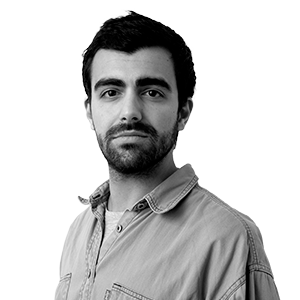Young people who want to transform the healthcare system: "Without change, we won't be able to retain talent."
Salut organizes a meeting between CAIROS and students, residents and workers who have recently started practicing


BarcelonaThe Salvador Illa government has set out to finally unblock the transformation of the healthcare system, which has been demanded for years from different spheres of the sector to ensure the sustainability of public healthcare. Professionals, scientific societies, unions, and employers' associations agree that urgent changes are needed to adapt the system to the current reality, with an aging and diverse society that has experienced significant economic and technological changes in recent decades. Therefore, they call for these reforms to be long-term and anticipate future problems and needs.
Students, residents, and healthcare professionals who have only recently begun practicing have a lot to say here, as they will lead the system in the coming years. And they all agree on the diagnosis: working conditions for workers must be improved, collaboration between different professional roles must be strengthened, and new technological tools, such as artificial intelligence, must be incorporated.
"The feeling is that we're a little late. The reforms to the system are very important, otherwise we won't be able to retain talent," says Mar de Pablo, a resident physician in hematology at the Hospital Clínic and president of the collegiate section of Resident Doctors and Young Doctors of the Barcelona College of Physicians (COMB). She is one of the thirty participants in the meeting organized this Wednesday by the Department of Health with young professionals in the sector and the Committee for Evaluation, Innovation and Operational Reform of the Health System (CAIROS), which is in charge of thinking about how this transformation of the system should be. De Pablo and the rest of the attendees have expressed their hope for the work of CAIROS, to which they have expressed their expectations and the lines they consider priorities when making changes.
Young people also demand continuity
27.8% of healthcare workers in Catalonia are under 35 years old, which is why the department has promoted a CAIROS Youth group with representation from different healthcare professions and regional and healthcare areas. During the meeting, the creation of a permanent consultation group was proposed to address the concerns, worries, and expectations of young people. The first meeting focused on talent retention, employee well-being, collaboration within a multidisciplinary team, training, and the importance of extracting value from each professional, among other topics. Marta Vila, a veterinarian in Public Health in Lleida, argued that it is also necessary to incorporate a "territorial perspective" to end current inequalities and go beyond healthcare with a "global vision" of health, which also includes prevention and public health.
Although they are confident that CAIROS can implement the changes the system needs, some attendees admitted that there is some concern that "political instability" could hinder the transformation. This is the case of Eric Fernández, a nurse at Hospital Clínic, who warned that "the consequences will be disastrous" if all the work CAIROS is doing comes to nothing. Based on the results of the working session, Salut plans to conduct a survey to send in June to 1,000 young professionals in the system to incorporate their contributions into the reform process.
